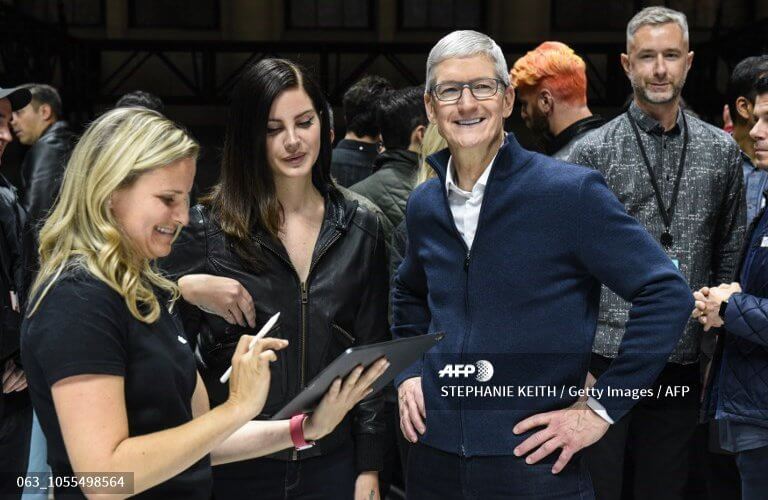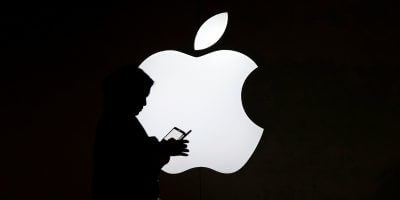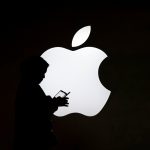
Tim Cook, CEO of Apple stands with Lana Del Rey (C) during a launch event at the Brooklyn Academy of Music on October 30, 2018 in New York City. File Photo. Source: AFP
Tech industry is beyond self-regulating phase: Apple CEO
REGULATIONS: Some see it as restrictive, and some feel it is protective.
However you may see it, new regulatory measures on tech companies and social media networks are no longer a matter of if they will be implemented, but when.
Apple CEO Tim Cook expects the United States (US) Congress to take up the matter in due time and roll out new laws to protect personal data.
“Generally speaking, I am not a big fan of regulation, I’m a big believer in the free market,” said Cook recently.
However, Cook added that the industry has to admit when free market solutions are no longer viable for the ecosystem.
“And it hasn’t worked here. I think it’s inevitable that there will be some level of regulation,” he added.
Cook had been a vocal proponent of self-regulation of the tech industry but in recent times has taken a more conciliatory approach to data protection regulations, philosophically consistent with his counterpart in Microsoft, Satya Nadella.
Many industry stakeholders have spoken out against government regulations, claiming that it will curb innovation and may present an unfair advantage to other global competitors, specifically from China.
However, China’s tech firms face similar regulatory crackdown at home, despite already operating in an isolated ecosystem altogether.
The United States remained the last bastion of “digital” freedom after the European Union in April 2016 opted the General Data Protection Regulation which sets stringent privacy guidelines for companies with ties to the region.
However, the lack of oversight became harder to justify after the Cambridge Analytica scandal — where the data firm managed to obtain personal data of millions of Facebook users.
The industry is now beyond the scope of self-regulation, according to Cook.
Facebook, meanwhile has been scrambling to assure the public that it is taking all the necessary steps to protect users’ data and defend against purveyors of misinformation aimed to manipulate election outcomes.
Calls have been made asking co-founder Mark Zuckerberg to step down from the chief executive position, due to the controversies that the social network firm found itself in, since the 2016 US presidential election.
However, regulating emerging technology may not exactly be as straightforward as one might expect. The technology often moves and evolve faster than government bureaucracies and legislative processes can keep up.
While the U.S has thrived under the relatively unregulated technology ecosystem which saw them lead the world in innovation and cutting-edge research, it is still unclear how the sector will react to the “inevitable” regulations that are coming its way.
Perhaps more importantly, will the future laws finally tip the balance in China’s favor in global tech dominance? Only time will tell.
READ MORE
- Ethical AI: The renewed importance of safeguarding data and customer privacy in Generative AI applications
- How Japan balances AI-driven opportunities with cybersecurity needs
- Deploying SASE: Benchmarking your approach
- Insurance everywhere all at once: the digital transformation of the APAC insurance industry
- Google parent Alphabet eyes HubSpot: A potential acquisition shaping the future of CRM






